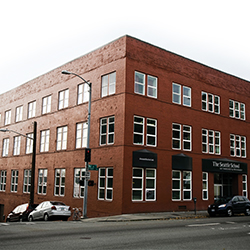For those of you relocating to Seattle, you got a taste of Seattle’s neighborhoods in an earlier Matriculate post, but what about finding the right house or apartment? Moving to a new city can be daunting, so we’ve collected a bunch of resources to help you in this time of transition, especially regarding your house-hunting search. Keep in mind, the Facebook cohort page is a great place to connect with others who might be looking for roommates, or to seek the insight of your incoming classmates who live locally.
- Live Lovely – This website is well curated and visually oriented. Just put in your desired neighborhood and price range, and watch the options appear – with pictures and a map!
- Seattle Rentals – Focused on our city, Seattle Rentals does a good job of keeping your house hunting contained. They also have great info for moving out here—check the Moving Resources box to the left.
- Apartment List – A website dedicated to the many apartments available in Seattle, this resource presents available spaces broken down into neighborhoods, highlighting pricing, noise level, etc. to make the search as seamless as possible.
- Apartment Guide – This apartment-focused site has a really helpful map view to help you see what’s available throughout the area, and all sorts of great options to filter your search.
- Trulia – Another great site that aggregates rentals with tons of nice options to filter down your search. Be sure to also use their local map to learn more about your potential neighborhood’s commute as well.
- Craigslist – Craiglist is a popularly updated rental listing in the Seattle area, and can be a very good resource as you search for a place to call home. As is the case with all posting sites, however, caution, wisdom, and safety is always recommended. It’s wise to get pictures before you see a place, even if that means emailing the contact person to ask for them. It might save you a trip, and asking for that is perfectly reasonable. If a landlord is unwilling to answer your questions before visiting a space, this may be an indication of how they would uphold their end of a lease in the future. Pay attention to what feels comfortable and reasonable and avoid deposits before feeling very confident about a place!
Tips and Tricks for the search:
- Timing – Most rentals get picked up fast, especially in the summer, so landlords often post their vacancies three weeks to a month out. As such, it’s not unreasonable to start looking a month prior to your timeline. Also because properties go fast, you need to have your ducks in a row before you see a place. Go ahead and decide who your references will be and start estimating your monthly income. That way you’ll be able to fill out the paperwork quickly.
- Avoiding the dreaded inept landlord – Trust your gut on this one, folks. If you don’t receive prompt communication, take note. If they answer your questions with vague or confusing language, pay attention to that, too. Seattle is a huge rental market, and if landlords know they have a great place on their hands, they may think they can get away with less than stellar follow-through. It’s also a great idea to familiarize yourself with your rights as a tenant, which actually go further in Seattle than in many cities. The Tenants Union of Washington State’s Seattle Renters page is an incredible resource on this.
- Utilities – Rental properties in Seattle sometimes include water, sewer, and garbage (WSG) in their prices. Always ask what’s covered under that monthly check you’ll be writing. In some cases, you may only have to pay separately for electric and internet. (And with all the coffee shops that have wi-fi around town, many people opt out of having internet service at home.) If water isn’t included in the rent (this is rare!), know that water service in Seattle tends to be pricey, so you’ll want to budget accordingly.
- Keeping your place warm in the winter while keeping cash in your wallet– Many houses in Seattle are older, and therefore drafty with poor insulation. You have a few options for how to deal with this. Keeping doors closed to rooms that aren’t occupied helps a lot. Avoid places that use oil heat if possible—it can be expensive and high maintenance. Also, there is a plastic film you can buy that is used to seal off your windows during the winter. It goes on the inside, so it’s a bit unsightly, but it may save you a bundle on your heating bills. Ask the lovely people at Home Depot for help; they’ll get you sorted out. Supplementing central heat with small space heaters in your individual rooms (which can be turned off and on as needed) can be a money saver too.
Settling In
- Check out Apartment Therapy or Design Sponge if you need design inspiration for a new layout.
- If you’re a fan of yard sale furniture hunting, you’re gonna love summer in Seattle. A lot of yard sale ads get put on Craigslist, and many Seattle neighborhoods have their own websites with community news (including yard sale listings). Otherwise, just follow the handwritten signs! Seattle has a plethora of neighborhood markets as well. The Fremont Market is chock-full of unique (and affordable) furniture finds.
- You can get a feel for the day-to-day life and personality of some Seattle neighborhoods by reading neighborhood blogs. For starters, peruse Phinney Ridge, Queen Anne, Fremont, Ballard, and Capitol Hill.
Commuting
- Seattle is fairly easy to navigate by bus, which will save you lots of cash on parking. King County’s online Trip Planner is a great resource for looking up bus schedules and ordering an ORCA card to load with money (the easiest way to have the exact change for bus fares). Google Maps is also a fantastic way to plan a trip by bus or Light Rail. Lastly, One Bus Away is an amazing free app for bus travelers. Once you download it you won’t remember how you survived without it!
- See how walkable your neighborhood will be with Walk Score.
- Traffic patterns: I-5 is a pain except for really early in the morning and after 8:00pm. Aurora Avenue (also known as 99) is usually smooth sailing from about 9:30am-4:00pm, but during rush hour, prepare to sit. There also tends to be a good bit of construction in many parts of the city, so keep an eye out for closures that might affect your commute.
Other than rush hour, traffic in Seattle doesn’t get too congested in comparison to other large cities, and there are lots of great shortcuts. A few things you will experience pretty quickly though:
- In parts of the city, the roads run parallel to the water. In other parts, it’s a standard grid. That means there are places where the two road systems intersect quite confusingly. Just do your best. You’ll learn the quirks eventually.
- Seattle drivers do not have great merging skills. This is partially because of the short merge lanes on many of the highways, so just be careful out there, people!
- If you are finding the traffic a bit disconcerting, just remember: This is why the bus is so great! Sometimes you can even do readings for class on your way in, and you won’t have to pay for parking. Save the earth, save your blood pressure, save your cash. A win all around.
- If you like mixing exercise and commuting, you can also bike! Seattle is a very bike-friendly city. (And if you really want to work up a sweat, you can take advantage of the showers on the 4th floor!) Check out bikeability rates and bike routes on Bike Score.


